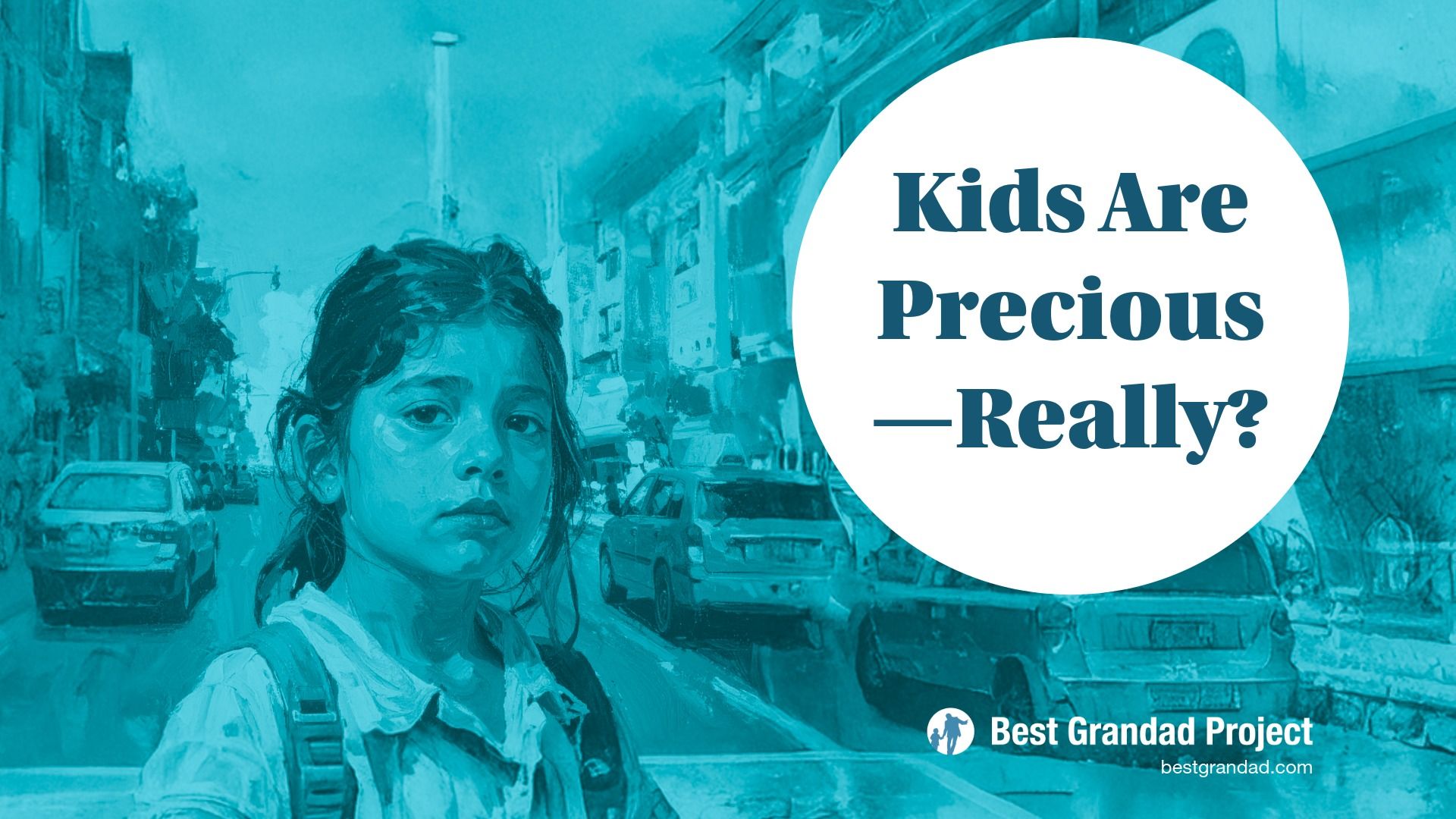Kids Are Precious—Really?

A practical, hopeful look at how adults can help kids thrive in a world that’s changing too fast.
I adore my grandson. I brag about him shamelessly. I call him precious.
But then I looked up the definition of precious:
“Of great value; not to be wasted or treated carelessly.”
And that got under my skin.
Because for all our talk, I’m not convinced we’re treating our kids with the care their future actually requires.
Here are three reasons why.
1. We’ve outsourced responsibility—and it’s numbing us.
When we get hurt, we buy something.
When we’re wronged, we blame someone.
When we’re frustrated, we burn it down—online or off.
That’s the world our kids are watching: when life stings, someone else should fix it.
But outside fixes don’t solve inside problems. They sedate you. They shrink you. They teach you that your life happens to you, not through you.
If kids seem anxious about the future, maybe it’s because the adults look powerless in the present.
2. We’re educating for a world that no longer exists.
Schools still reward the three C’s: copying, conforming, complying.
Meanwhile the real world runs on adaptability, curiosity, reinvention.
Families are exhausted, kids are overscheduled, parents feel guilty, and the golden prize at the end of it all is… a degree that increasingly costs a fortune and guarantees nothing except a head start on debt.
All this to enter a world that is already making so many adults miserable.
If kids feel lost, it might be because we’re pointing them toward a future that doesn’t match the map we’ve handed them.
3. Our obsession with feelings is stopping us from starting.
We’ve taught kids they should feel motivated before starting, feel safe before growing, and feel good while they’re doing it.
But the world doesn’t work like that.
The people who make progress rarely feel ready—they just start.
Growth doesn’t feel safe until after you’ve done the scary thing.
And fun? Fun usually shows up later, once momentum kicks in.
We’ve handed kids the wrong rulebook and then wondered why they’re hesitating to begin their adult lives.
So… who’s to blame?
Honestly? Probably no one in particular.
Social change creeps up on us. Culture drifts. Systems calcify.
And somewhere in the middle of it all, kids just inherit the world we designed.
But while I’m not to blame, I am responsible.
That’s the bit that matters to me.
I can’t fix the education system.
I can’t overhaul the culture.
I can’t make millions of parents suddenly rethink everything.
But I can influence one child’s world.
So instead of looking away and shrugging—“What can one person do?”—I’m choosing to try.
Here’s how I’m starting.
How one grandad can make a difference
1. Be a beacon of optimism
Optimism isn’t naive—it’s direction-setting.
If kids can’t picture a future worth walking toward, why on earth would they start moving?
I want to be someone who makes the future feel worth exploring.
2. Wear my L-plates proudly
I’m a serial beginner, and I want him to see that as a superpower.
Credentials age. Curiosity doesn’t.
So I’ll stop asking, “What did you learn today?”
And start asking, “What questions did you ask today?”
Questions open worlds. Answers just describe them.
3. Normalise failure
I want him to see failure the way I see my glasses: annoying, but incredibly useful.
Failure is feedback, not a stop sign.
So I’ll say it out loud when I get things wrong.
I’ll laugh at my missteps.
I’ll show him that progress usually looks ridiculous at the beginning.
If kids really are precious—and they are—then they deserve adults who step up, not step aside.
This is me stepping up.
If you want to walk alongside me, I’d love that.




